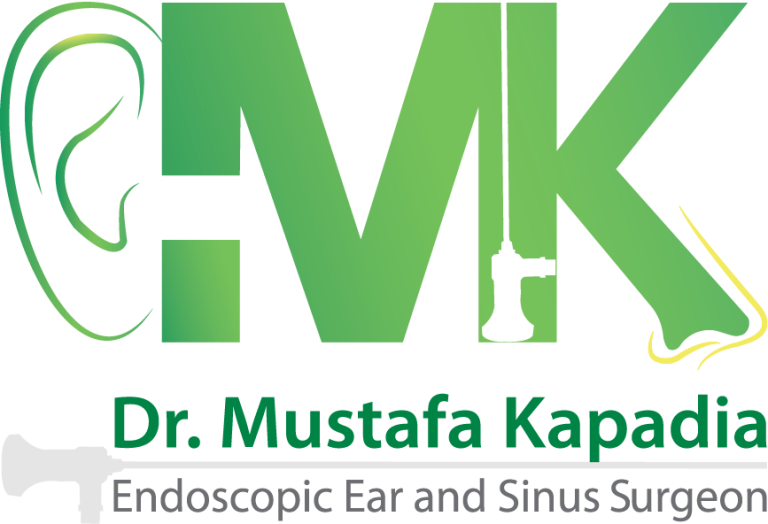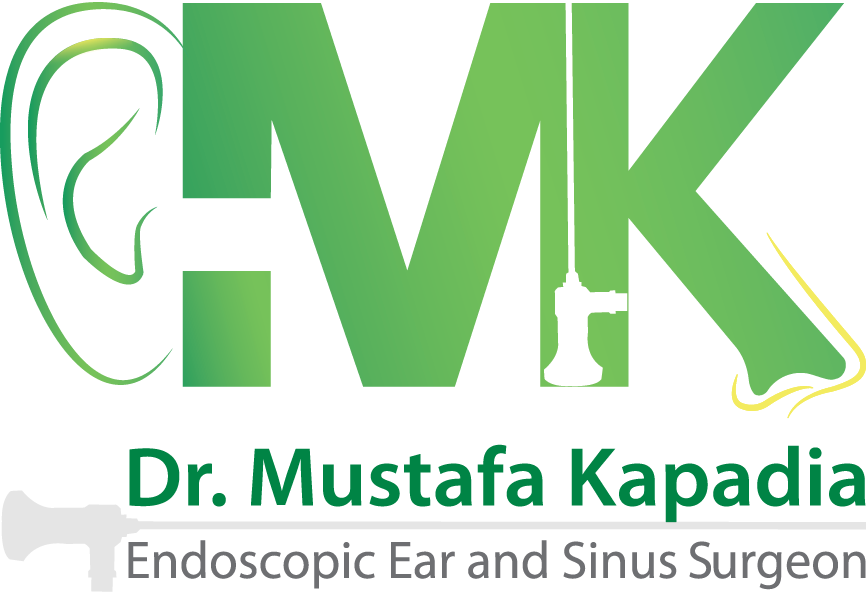Sleep Apnea/Snoring Treatment Dubai
What is Snoring and Sleep Apnea?
Snoring is a raspy or loud sound produced by air passing through relaxed tissues in the throat, causing the tissues to vibrate while you breathe. Snoring is something that almost everyone does from time to time, but for some people, it may become a persistent problem. It might also be a sign of a significant health problem. Furthermore, snoring might be a bother to your partner.
Besides, excess snoring can even cause sleep apnea. Sleep apnea is a disorder that is potentially fatal in which breathing stops and starts repetitively. In such cases, snoring and sleep apnea treatment in Dubai is necessary. You must ensure that you consult a qualified ENT doctor who can guide you through the right line of sleep apnea treatment in Dubai. Some of the common types of sleep apnea are:
- Obstructive sleep apnea (OSA) occurs when the neck muscles relax and limit airflow into the lungs.
- Central sleep apnea (CSA) is when the brain fails to provide correct signals to the muscles that govern breathing.
- Treatment-emergent central or complex sleep apnea occurs when someone has OSA (as determined by a sleep study) that transforms into CSA while getting OSA therapy.
Sleep Apnea Symptoms:
The symptoms of central and obstructive sleep apnea may sometimes overlap, making it tough to understand which type you have. Some of the common symptoms of obstructive and central sleep apneas include:
- Loud snoring.
- Gasping for air during sleep.
- Episodes in which you stop breathing during sleep.
- Awakening with a dry mouth.
- Morning headache or Irritability.
- Difficulty staying asleep, known as insomnia.
- Hypersomnia (sleepiness during daytime).
- Difficulty paying attention while awake.
Symptoms:
Snoring is frequently linked to a sleep condition known as obstructive sleep apnea (OSA). Not all snorers have OSA, but if your snoring is accompanied by any of the following symptoms, you should contact a doctor for an OSA evaluation:
- Excessive daytime sleepiness
- Breathing pauses seen during sleep
- Concentration problems
- Headaches in the morning
- When you wake up, you have a sore and dry throat.
- Sleepless nights
- At night, you may find yourself gasping or coughing.
- Blood pressure that is too high
- Nighttime chest ache
- Your snoring is so loud that it’s disturbing your partner’s sleep.
- In youngsters, low attention span, behavioral difficulties, or poor academic achievement are all possible causes.
What causes sleep apnea?
Snoring may be caused by a variety of things, including your mouth and sinus structure, alcohol use, allergies, a cold, and weight.
The muscles in the roof of your mouth (soft palate), tongue, and throat relax when you fall asleep and move from light to deep sleep. The tissues in your throat might loosen to the point that they partially obstruct and vibrate your airway.
The following disorders can induce snoring by affecting the airway:
The shape of your mouth:
A low, broad soft palate might restrict your airway. Obese people may have additional tissues at the back of their throats, causing their airways to constrict. Airflow can also be blocked and vibration enhanced if the triangular portion of tissue hanging from the soft palate (uvula) is extended.
Alcohol consumption:
Drinking too much alcohol before night can potentially cause snoring. Alcohol weakens your natural defenses against airway blockage by relaxing your throat muscles.
Nasal problems:
Snoring can be caused by chronic nasal congestion or a crooked barrier between your nostrils (deviated nasal septum).
Sleep position:
Because gravity’s influence on the throat narrows the airway, snoring is the most common and loudest when lying on your back.
Risk factors:
Snoring can be caused by several causes, including:
- Men are more prone than women to snore or suffer from sleep apnea.
- Being overweight is a problem. Overweight or obese people are more prone to snore or suffer from obstructive sleep apnea.
- Having a restricted airway. A lengthy soft palate, big tonsils, or adenoids in certain persons can restrict the airway and induce snoring.
- Taking alcoholic beverages. Because alcohol relaxes your throat muscles, you’re more likely to snore.
- I’m having issues with my nose. Snoring is more likely if you have a structural abnormality in your nasal airway, such as a deviated nasal septum, hypertrophied nasal turbinates.
- Having a history of snoring or obstructive sleep apnea in your family. OSA is linked to a family history of the condition.
Complications:
- Snoring on a regular basis might be more than an annoyance. You may be at risk for further issues if your snoring is linked to OSA, such as:
- Drowsiness during the day
- Anger or fury on a regular basis
- Concentration problems
- A higher risk of hypertension, heart disease, and stroke.
- In children with OSA, there is a higher risk of behavioral issues like aggressiveness or learning difficulties which makes sleep apnea treatment crucial.
- Lack of sleep puts you at a higher risk of getting into a car accident.
What are the effects of sleep Apnea?
Sleep apnea can lead to a variety of health issues, including hypertension, stroke, arrhythmias, cardiomyopathy (enlargement of the heart muscle tissue), heart failure, diabetes, obesity, and heart attacks if left untreated.
Diagnosis of Sleep Apnea:
- Complete symptom history and ENT clinical examination
- Flexible Naso-laryngoscopy to evaluate Nasal, Post-nasal, and pharyngeal airway
- Sleep study to diagnose and grade severity of sleep apnea
- Drug-induced Sleep endoscopy (DISE) is to evaluate the upper airway and look for exact sites of obstruction while the patient is under sedation (drug-induced sleep).
- Imaging studies like CT facial bone
Sleep Apnea Treatment in Dubai
Continuous Positive Airway Pressure (CPAP) therapy is a primary treatment for sleep apnea. CPAP uses a machine that delivers a constant stream of air via a mask, keeping the airways open and preventing interruptions in breathing. This method is a highly effective treatment for sleep apnea in Dubai and is commonly prescribed for moderate to severe instances of sleep apnea.
Snoring Treatment in Dubai
Snoring is commonly linked with sleep apnea, and addressing snoring can be an essential aspect of sleep apnea treatment. In Dubai, specialized clinics offer comprehensive snoring treatments to improve the sleep quality of affected individuals. Positional therapy, lifestyle modifications, and the use of oral appliances are some of the non-invasive approaches that may be recommended to manage snoring. If you are seeking effective snoring treatment in Dubai, contact Dr Mustafa Kapadia, best sleep apnea doctor in Dubai for personalized sleep apnea treatment in Dubai, tailored to your specific needs.
Continuous Positive Airway Pressure (CPAP) Therapy
CPAP therapy remains a cornerstone in the treatment of sleep apnea in Dubai. This method requires using a CPAP machine, which delivers a constant airflow through a mask worn during sleep. The positive pressure generated by the machine helps keep the airways open, preventing the interruptions in breathing characteristic of sleep apnea. Adherence to CPAP therapy is crucial for its effectiveness, and healthcare providers in Dubai work closely with patients to ensure proper usage and comfort.
Oral Appliances and Lifestyle Modifications
Oral appliances may be recommended for mild to moderate sleep apnea or those who struggle with CPAP therapy. Oral appliances are designed to reposition the tongue or jaw, helping to keep the airways open. Lifestyle modifications, such as weight management, avoiding alcohol and sedatives before bedtime, and maintaining a sleep schedule, may play a significant role in managing sleep apnea and snoring.
Consult Dr. Mustafa Kapadia for Snoring treatment in Dubai
Seeking timely and specialized care for sleep apnea is paramount to avoid unforeseen outcomes.
With advancements in diagnostic tools and various treatment options, individuals can find effective solutions tailored to their needs, ensuring a restful and rejuvenating night’s sleep.
Our Otorhinolaryngologist, Dr. Mustafa Kapadia, has several years of experience handling complex snoring and apnea cases. He is a master in this domain and can help you with precise guidance if you want sleep apnea and snoring treatment in Dubai.

